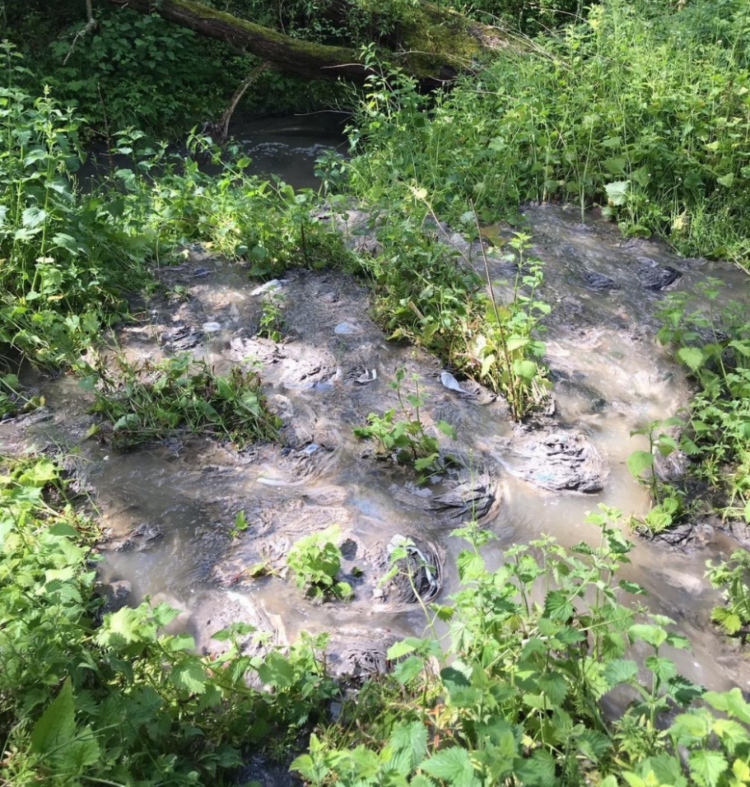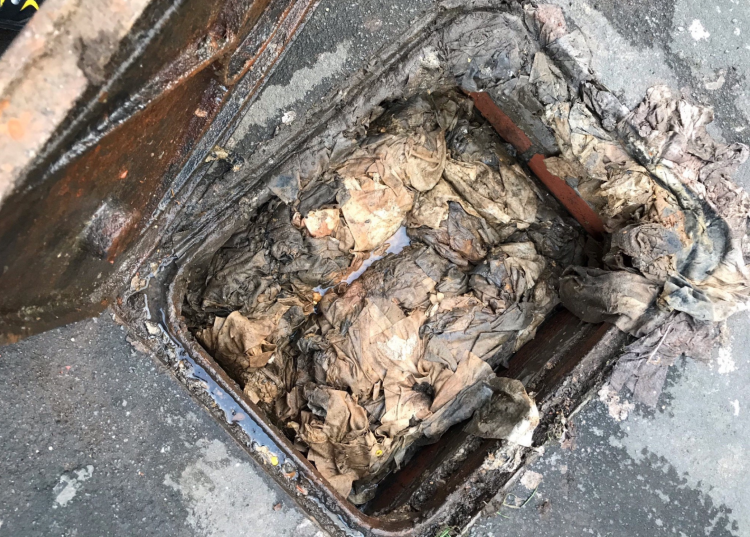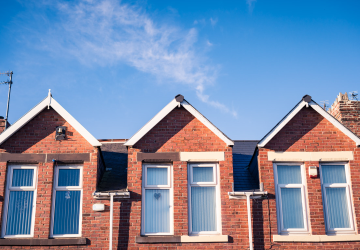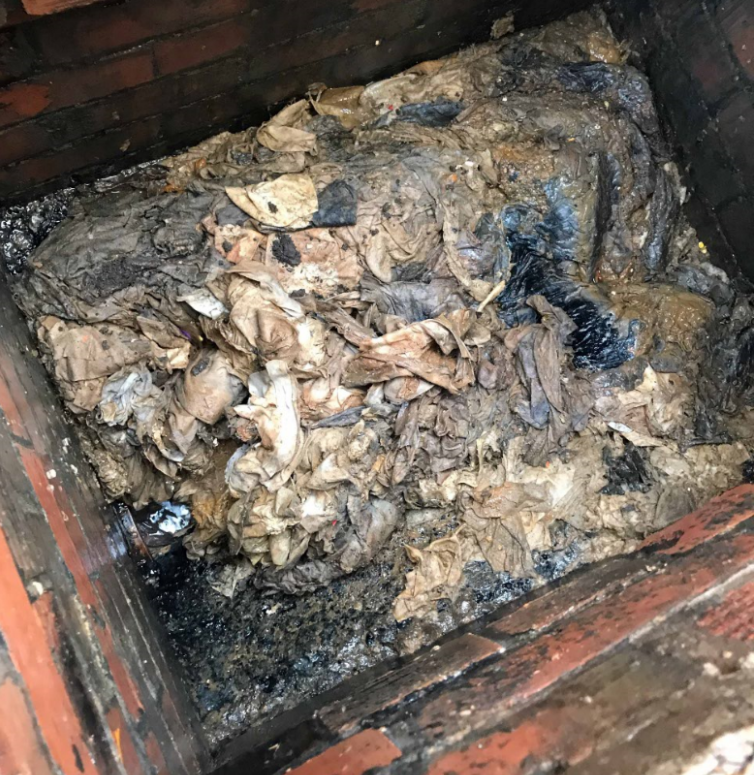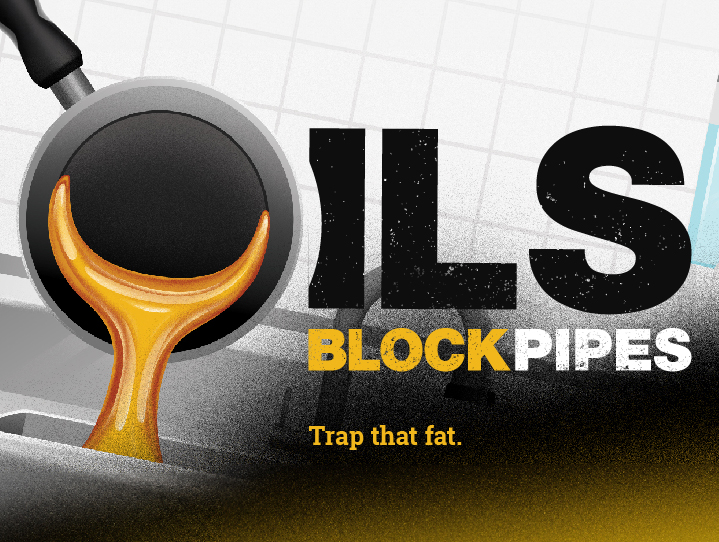Sewer flooding
What to do during flooding
If you experience any kind of flooding, it’s an unpleasant situation. To help you get it sorted, follow our guidance on who to contact, how to stay safe, and what we do to help.
Types of flooding
There are different types of flooding, and the responsibility depends on the kind of flood. You’ll need to contact the right organisation to help you.
Who to contact
If the flood is coming from a river, please contact the Environment Agency on 0800 807 060.
Flooding from groundwater can happen when the level of water within the rock or soil that makes up the land surface (known as the water table) rises.
The level of the water table changes with the seasons due to variations in long term rainfall and water abstraction.
If you're affected by groundwater flooding, contact your local council (opens new window).
If the flooding occurs due to a blocked gully, which is a slotted drain usually found close to the kerbside)
Please contact your local council (opens new window).
Sewer flooding in your home or garden
If sewer flooding is inside your home or garden (within your property boundary), call our 24 hour helpline immediately on 0800 328 7648.
This could be sewage entering your home from a toilet, a kitchen or bathroom sink, a drain cover in the garden or from a public sewer (manhole) in the street.
If it’s safe, take photos and/or videos of the flooding. These will help with our investigation, and will also support your insurance claim
What happens after you've contacted us?
When you call us, we may be able to diagnose, over the phone, if the problem is on your private pipework.
If it is on your private pipework, it’s your responsibility and you’ll need to arrange the repair. We’ll support and advise you as much as we can over the phone. Find out more about sewer pipe responsibility.
This means the sewer flooding is coming from your private drain within your property boundary. It could be caused by a blockage, from putting wrong things down the toilet or sink or damaged private pipework.
We recommend you contact your insurance company, as they may be able to arrange a clean-up and replace damaged items. You can hire a plumber or a drain clearing company to help you.
If the sewer flooding is inside your property, turn off your gas and electric. It can help to prevent further damage.
It's important you get in touch with your home insurer to let them know of a flooding incident. If you've suffered any loss or damage, your insurer will let you know what to do next to make sure the terms of your policy are met.
When the problem is our responsibility, we aim to visit within two hours if it's inside your property. If it’s outside your property we aim to visit within four hours
Sewer flooding inside the property is given priority. However, in the event of severe weather and widespread flooding, it can take us longer. If we do run late, we'll let you know and give you an estimated time of arrival.
Once on site, we'll aim to remove any blockage and stop any sewer flooding. We’ll carry out an investigation to help us find out what caused the flooding. We’ll update you on our progress and provide you with timescales for fixing the cause of the flooding.
After external sewer flooding, we will wash down and disinfect all hard standing areas, such as paths, patios or yards. If the ground is waterlogged, we may need to leave the clean-up for a day or two to avoid disturbing the ground and spreading the contamination.
If the sewer flooding is inside your property, we can help clean it up. This will be completed by the end of the next day. If this isn’t possible, we’ll discuss this with you and keep you updated.
In the most serious instances, you’ll need to complete any clean up with the support of your insurance company. To help with your costs, we'll pay for your insurance excess up to £500 where this is necessary.
For customers who are experiencing financial hardship and are unable to obtain household insurance, we'll contribute up to £600 towards damaged house contents. Each application is considered carefully, and we do reserve the right to carry out investigations to assess the validity of your application.
Find out more about Our Promise to you - Guaranteed Standards of Service.
What should I do during flooding?
Sewer flooding is usually made up of water and waste from bathrooms and kitchens, so it's important you use hygiene precautions to keep everyone safe. Please follow our guidance below to protect you and your family.
How to stay safe
Do
- wear rubber gloves when clearing up flood water damage and be careful of sharp objects
- use waterproof dressings to cover cuts and wounds
- always wash hands after exposure
- Wash and treat footwear with a mild disinfectant, and
- keep children and pets out of the water.
- Next, wash down surfaces with hot soapy water until it looks clean, and leave to dry.
- Use a household disinfectant on all hard surfaces - follow the manufacturer's instructions to avoid any damage if you're unsure.
- Use a food-safe disinfectant for any surfaces where you prepare food.
- Put your heating on low and open windows to help dry your home quicker.
Don't
- Eat anything before you've washed your hands.
- Eat anything that may have been in contact or covered, including garden vegetables.
- Let children or pets go near the flooding. This includes any outdoor paving and grassed areas.
In outdoor areas, most contaminants will be exposed to the sun's ultraviolet radiation which is effective at killing bacteria and sewage should decay. Please avoid using the affected areas for the timescale below:
Season Turf/clay (days) Soil/sand (days)
Spring 13 20
Summer 6 9
Autumn 13 20
Winter 18 11
After a flooding event
Once we’ve left site, we will keep you up to date with our investigation and what we plan to do to avoid any repeat occurrence.
You will also receive contact from one of our case handlers, who will be your main point of contact. We will keep you updated about the cause of flooding and what we will do to put it right.
Helpful links
Blocked drains
What to do if you find a blocked drain or sewer in or around your property
Find out what to do about a blocked drain
Sewer pipe responsibility
Find out who owns the pipes in your home and property
Find out about sewer pipe responsibility
Home emergency cover
Cover for unexpected problems, such as, burst pipes, blocked drains, leaking taps and toilets
Find out more with HomeServe
Bin the Wipe
Flushing wet wipes down the toilet block pipes. It can cause problems inside your home
Find out more about Bin the Wipe
Fats, oils and grease
Useful tips and downloads to prevent blockages
Find out how to manage fats, oils and grease
Downloadable content
Are you sure?
Changes are waiting to be saved
